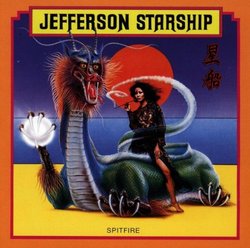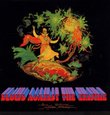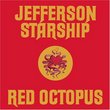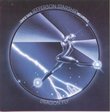| All Artists: Jefferson Starship Title: Spitfire Members Wishing: 3 Total Copies: 0 Label: RCA Original Release Date: 1/1/1976 Re-Release Date: 2/25/1997 Genres: Pop, Rock, Classic Rock Styles: Adult Contemporary, Album-Oriented Rock (AOR), Arena Rock Number of Discs: 1 SwapaCD Credits: 1 UPC: 078636687629 |
Search - Jefferson Starship :: Spitfire
 | Jefferson Starship Spitfire Genres: Pop, Rock, Classic Rock
|
Larger Image |
CD DetailsSimilar CDs
|
CD ReviewsA Variety Show--But What A Variety! Gregor von Kallahann | 12/31/2007 (5 out of 5 stars) "For those people who tend to view Airplane/Starship history as one long ongoing rivalry between Grace Slick and Marty Balin, the mid-70s might be considered a turning point. Marty was not only back in the fold (a fold that he had been instrumental in founding) but HE was the one now turning into a hit factory. If interloper Slick had captured the public imagination and supplied the Airplane's earliest chart toppers ("Somebody To Love" and "White Rabbit," as if they needed any mentionign), Marty's romantic balladeering and more AOR sensibility seemed now poised to steer the group into the not-so-psychedelic soft rock of the Seventies. And for Balin fans, that was a kind of poetic justice. But even though it had long been a critical trope of sorts to blame any or all Airplane shortcomings on Balin's reduced, post-PILLOW role, his ascendency in the revived Starship brought about its own set of criticisms--namely that Balin was turning into a neo-lounge singer of the sappiest variety. "Miracles" was fine, they said, if overlong. But it led to a string of copycat singles beginning with this successor album's "With Your Love" (and would continue with "Count On Me" and his solo "Hearts"). There were jokes about how Marty always really wanted to be a soul balladeer but he was really turning into a Schlockmeister plain and simple. You can't win for losing in life, or especially, in the music biz. As a fan of the ENTIRE group, I have always been willing to concede that, yes, the singles were getting a bit formulaic, but then again, they were just singles after all. If you wanted to know what the group was up to as a whole, or even what Marty Balin was up to within the context of the entire oeuvre, you still had to listen to the albums. Interestingly enough, Marty has both this album's opening AND closing tracks, and neither is "Miracles II." "Cruisin'" is a bit funkier than your average JA/JS fare, but it would be unfair to say that Balin is coming off as a soulman wannabe. He and the band are just having fun. The track is a bit of a goof, a soul-inflected "car song" with a bit of bounce and a bit of wit (it offhandedly quotes the Beatles' "Drive My Car"). "Love Lovely Love," the album's closer, is a lushly romantic number, but more uptempo and urban than the hit ballads he was accused of starting to churn out even then. For her part, Grace was continuing a trend begun on RED OCTOPUS. She was writing her own brand of oblique, quirky love songs that were tight, taut and brimming with irony. Songs with titles like "Switchblade" and "Hot Water" may address, in their own quirky way, matters of the heart, but no one is going confuse them with "You Light Up My Life" (even though Grace actually claimed to be a FAN of that last tune--and by gum, I can't think of anyone else's take on it that I'd rather hear). Grace is as steely and as cryptic as ever, but it's pretty clear that "Switchblade" is addressing the topic of romantic rivalry while the snakey, sensuous "Hot Water" seems to tie in romantic love, caritas and agape in a striking, sweeping way. As per usual with Grace, you can't exactly write a precis on what she's saying. And of course, you'd scarcely want to. Grace's two self-penned originals are as strong as her typical two or three song contribution to any previous Airplane album, and that's saying something. In fact, she is being as true to HERSELF here as Marty is to HIMSELF. It was around this time that Balin gave his (somewhat notorious) interview to CRAWDADDY, in which one of the least offensive things he said was that the Starship was basically a "variety show." Well, yeah, but what variety! Now,of course, in any discussion of the group, there is always the Paul Kantner question to consider. Speaking of magazine interviews, there had been one a few years before in which Grace admitted to Lester Bangs that, yes, on the one hand, she understood how people could find Kanter to be bombastic and overbearing--but she also understood what he was trying to do. I could relate to that comment, even though objectively, there probably IS no excuse for overbearing bombast. Still there was always something, I dunno, almost touching about Kantner's attempts to say something more than the typical rock song, to inspire and evoke a sense of community that was scarcely existent by 1976 (or, for that matter, by 1969). And what I liked best about SPITFIRE was that the Paul Kantner songs really AREN'T all that heavyhanded. For one thing, he co-wrote most of them with either Grace or Marty or both (with a little contribution from the then five-year old China Wing Kantner to boot). I was a fan, but I would often hold my breath a bit upon hearing a new Kantner song. Would it cross the line into pomposity and grandiosity. Well, the delightful thing about his efforts on this album was that they really did not. "Dance With the Dragon" continues the bounce that Marty's "Cruisin'" set up, and if it seems to be addressing more exotic concerns (with that Oriental thing going on), it doesn't portentously declaim the difference between, say, Chinese and Western tears (a la earlier tracks like "Ride the Tiger"). And "St. Charles" and "Song To the Sun: Oxymandias/Don't Let It Rain" (which while true group efforts have all the hallmarks of Kanter epics) actually do achieve something of the grandeur Paul Kantner was always trying for. I'll always remember a time I started to doze slightly while listening to "St. Charles" and finding it a near-perfect dream song. So, yeah, in the grand old Airplane tradition, everybody gets to do a bit of their thing on SPITFIRE, and while some complain that that even includes drummer John Barbata's toss-off "Big City," I don't even mind that one. It's a bit of an echo to (the original Side One's) "Cruisin'" and reminds us that all was not solemn and arty in the Airplane/Starship camp. And while some find SPITFIRE a lesser work than OCTOPUS, I can't help but wonder if they were already looking back nostalgically at "Miracles." This is a more song-oriented album (remember that OCTOPUS had not one, but two just OK instrumentals), and the singers are all in good form. For those of us, who see the best Airplane/Starship work as a synergy (and NOT as a rivalry), SPITFIRE was maybe their last great collaboration." Excellent B. E Jackson | Pennsylvania | 12/16/2008 (5 out of 5 stars) "You know, people try telling me Jefferson Starship's music is badly dated just because they were making a somewhat commercial sound that's stuck in the 70's. But who cares about that when there's excellent songwriting, beautiful vocals, and GREAT guitar playing (underrated guitar playing on ALL early Jefferson Starship albums). The guitarist jams whenever he wants, usually behind the vocal melodies, and I happen to think that's a GREAT thing because his guitar playing builds emotion simultaneously with the emotions of the lead singer- one of Jeffership Starship's trademarks and the reason I LOVE this band as much as I do. As far as I know, no other band has THIS exact sound and style, even during the 70's. Jefferson Starship were really good at combining vocals and guitar playing and making them BOTH extremely emotional at the same time. It's an interesting way of writing music really. The band feels like they are trying hard to connect the listener to the music they're making, and you can't help but tear up a little bit. Anyway, the songs are great on Spitfire. The underrated "Cruisin" and emotional attachment of "Love Lovely Love", and the hit songs such as "St. Charles" and the BRILLIANT "With Your Love". You can't go wrong with this album. It's just as good as Red Octopus and Dragon Fly." One of a few real rock albums in the budding age of disco Brian D. Griswold | Pompano Beach, FL United States | 08/13/2010 (5 out of 5 stars) "Given the time frame of this album it's surprising it was ever released. Let's face some facts here: as bad as the 70's was, in general, for rock music this album managed to build on the JS's earlier efforts. You have to credit Craig Chaquico for his lead guitar work, obviously, but the troika of Kantner, Slick and Balin send a message loud and clear: the years don't matter. This is a supremely polished effort.
Having seen the Airplane live on several occasions, this studio friendly assemblage is stunning. St. Charles alone is worth the price of the album; everything else is a bonus. Song to the Sun is a classic; there is not a single song on this album that qualifies as 'filler': it's all good. I would, however, advise you to download this album as an MP3 for one reason: the original CD (which I own) is...you know...mic'd down. I'm no expert on music (beyond knowing what I like) but the remastered version is a little louder. So I can't comment on CD releases beyond the one I bought back in the 80's, except to say the obvious: the remastered versions have better bass. That caveat in particular applies to the Airplane, more than this, as Jack Cassidy's bass was hidden in the master tapes until the CD's came out, and nowhere more noticably than 'Blows Against the Empire.' While Pete Sears is an excellent bass player (on parity with Geddy Lee and that guy in Van Halen), Cassidy remains the Master of the elctric bass guitar. This effort ranks up there with 'Crown of Creation' for originalty. So buy it and listen closely and get that this is music with a message. As an aside I might mention there was a time when St. Charles was actually played, over the air, on commercial radio. Really. But that was then." |

 Track Listings (9) - Disc #1
Track Listings (9) - Disc #1

